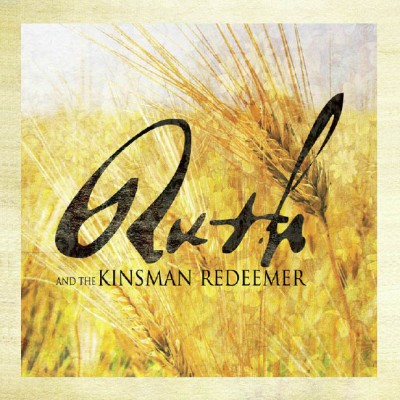Sermon Summary
Last week, Pastor Dan introduced us to the Old Testament book of Ruth. We were introduced to an Israelite named Elimelech, his wife Naomi, and their two sons, Mahlon and Kilion. They lived during a dark, evil period in Israel’s history called “the time of the judges.” There was a famine in Israel, so they became refuges in a neighboring county called Moab. And then things got steadily worse: first Elimelech died, then both sons! Naomi was widowed and childless—and living in a foreign land. Naomi truly thought she was hopeless and helpless. The only bright spot in Naomi’s life came from a surprising source—her pagan daughter-in-law, Ruth.
When Naomi showed up in Israel with a pagan, Moabite daughter-in-law, it caused a lot of tongues to wag! Ruth the Moabitess was at a distinct disadvantage in Israeli society. Through no fault of her own, Ruth had significant prejudices to overcome. We pick up our story in Ruth, Chapter 2. Ruth decided to go out into the harvest fields to pick up stalks of grain left behind by the harvesters—a process known as “gleaning.” By what some would call “coincidence,” Ruth just so happened to find herself working in a field owned by a godly man named Boaz, who was a wealthy relative of Naomi’s husband, Elimelech. In reality, however, God had providentially directed Ruth to the field of her rich, devout relative.
Ruth worked hard all that day, beginning from sunup. Later that day, Boaz arrived from Bethlehem and greeted the harvesters with a benediction. Boaz’s kind manner of speaking to his workers was not typical behavior during the time of the judges. However, God’s word teaches that, no matter how dark or evil a time may be, God always preserves a godly “remnant.” There are always some people who know and love God.
Boaz noticed Ruth working in the fields and asked his workers who she was. The foreman replied, “She is the young woman from Moab who came back with Naomi.” Boaz then walked up to Ruth and said, “Listen, my daughter. Stay here to gather grain; don’t go to any other fields…I have warned the young men not to treat you roughly. And when you are thirsty, help yourself to the water they have drawn from the well.” Ruth was dumbfounded. Someone actually cared about a poor, Moabite widow. Ruth fell at his feet and thanked him warmly. “What have I done to deserve such kindness?” she asked. “I am only a foreigner.” What had she done? Loyalty to her grieving mother-in- law was Boaz’s answer. Boaz did everything he could to replay Ruth’s kindness toward his relative, Naomi. He was treating her like family—because that’s what she was.
When Ruth returned to Naomi that evening, Naomi asked, “Where did you gather all this grain today?” Ruth answered, “The man I worked for today is named Boaz.” “May the LORD bless him!” Naomi told her daughter-in-law. “He is showing kindness to us as well as to your dead husband. That man is one of our closest relatives, one of our family redeemers.” This ends one remarkable day. Fifteen or sixteen hours earlier they were two hungry, hopeless widows. By day’s end, God had richly provided for these desperate, vulnerable women.
What life lessons can we extract form these new developments in the story?
God will always preserve a godly remnant in the midst of a corrupt world; it doesn’t matter how sinful and dark the times become. It was true in Ruth’s day; it will remain true forever. So, don’t fret when you see our culture—and even other churches— compromising. Stand firm; be part of the godly remnant.
Here’s a corollary to the remnant principle: Boaz was godly—but he had to warn his workers not to give Ruth a hard time. In the same way, you have a right and a responsibility to set the moral tone in your spheres of influence.
Here is one other lesson which flows out of the principle of the godly remnant: Ruth the Moabitess didn’t come from the best background in the world. But she won over her critics with her virtuous deeds. Don’t judge a book by its cover. Never count someone out simply due to their background and history. The critical issue is the content of their character.
All of these life-lessons flow out of the principle of the godly remnant. That’s our side of the equation. But God’s role is to sovereignly and providentially rule his universe. Trusting in God’s sovereignty and providential control provides us with a basis for trust, confidence, hope, and rest.
Application / Challenge
- Believe what the Bible says: God is providentially in control of his world. Submit to his lordship, rest confidently in him—no matter how chaotic things appear.
- Live as part of God’s godly remnant in the midst of a dark, deteriorating world. Promote godliness in your sphere of influence.


